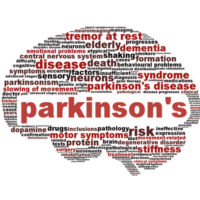
Consultation Today
- Tel: 561-686-6200
- Fax: 561-686-0303


Coronary heart disease is the foremost cause of death in the United States. Heart disease often leads to heart attacks. A heart attack is a life or death emergency. People having heart attacks can benefit from medication and treatments that have been developed in recent decades. Usually, the selected treatment must be administered quickly. Some heart attacks are sudden and intense while others may start slowly with mild pain so that the person is unsure of what is happening. They may wait too long to call for help. Some indicators that a heart attack is occurring would include:
This disease (LBD) is an umbrella term for two related diagnoses. LBD refers to both Parkinson’s disease dementia and dementia with Lewy bodies. LBD is a multi-system disease and typically requires a comprehensive treatment approach. LBD is progressive dementia. It is accompanied by recurrent complex visual hallucinations, typically well-formed and detailed. Some features of LBD include REM sleep behavior disorder, severe sensitivity to neuroleptics, and low dopamine transporter uptake in the brain basal ganglia. Frequently, there are repeated falls, transient unexplained loss of consciousness, autonomic dysfunction, hallucination and visuospatial abnormalities.
Adult macular degeneration affects people over the age of 55 years. The retina of the eye contains an extraordinary photosensitive collection of cells lining the back of the eye. The light falling onto those cells in the retina is transformed into electrical signals that are transmitted to the brain centers that process and interpret them. Macular degeneration is the imprecise historical name given to that group of diseases that causes sight-sensing cells in the macular zone of the retina to malfunction or lose function and results in debilitating loss of vital, central or detail vision. The brain compensates and fills- in the missing part of the picture in early-stage cases. Most patients do not report this to their ophthalmologist until the disease is fairly advanced. Sometimes, only one eye loses vision. When both eyes are affected, it is difficult to read or to do close-up work. One in three Americans over the age of 75 is affected. Researchers have recently discovered a group of genes that may increase the likelihood of an individual developing macular degeneration by approximately thirty percent. However, for most people, macular degeneration is due to both environmental and genetic factors. Diet plays a major role in controlling environmental risks. Smoking is a major contributor to macular degeneration.